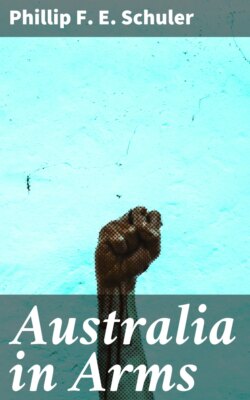Читать книгу Australia in Arms - Phillip F. E. Schuler - Страница 8
На сайте Литреса книга снята с продажи.
ОглавлениеInto the jaws of death,
Into the mouth of Hell.
THE STAFF OF THE FIRST AUSTRALIAN DIVISION AT MENA CAMP.
To face p. 22.
All around the hills were green still. Each day they were covered with lines of moving troops. Infantry passed the guns on the road, and Light Horse passed the infantry and wheeled in through the same break in the panelled fence. The Commandant, Colonel Wallace, inspected the units in the making, so did the Brigadiers and the General himself or his representative. Then the State Governor, Sir Arthur Stanley, took a part, and the Governor-General spent an afternoon at the camp and reviewed the whole of the troops. The people flocked in thousands on holidays and Sundays to see their soldier sons. The camp each night was full of visitors till dusk, for those few precious hours permitted after the day's duties were done when family ties might be drawn close just a little longer. Every train and tram was filled with bands of soldiers; the traffic on the roads showed its quota of khaki. Bands turned the people's thoughts to war with their martial music, as they woke the troops with their persistent beating in the early morning.
What it was in Melbourne, so in every State capital of the Commonwealth, where the camps lay scattered on the outskirts of the suburbs. Each State trained its own men for a common interest for the First Division, and in each State the method, like the routine, was the same.
The time was approaching for departure. Camps were closed to the public. All leave was stopped. Nobody knew the date of going, and yet everybody knew it and chafed under the wait. But before the men went they showed "the metal of their pasture." In one never-to-be-forgotten glistening line they swept through the centres of the cities, marching from end to end. What once had been a heavy day—the march out to camp—they made light of now; and while the Light Horse headed the columns, the horses prancing and dancing to the drums, the guns rumbled heavily with much rattling after the even infantry lines. And still it was not farewell. Those tender partings were said in the quiet of the hearth. It could only be taken as the cities' greetings and tributes to the pioneers—those men of the 1st Australian Division—who went quietly, silently, without farewells to the waiting transports in the bright mid-October sunlight—train after train load of them—down to the wharves.
And the people who watched them go were a few hundreds.
